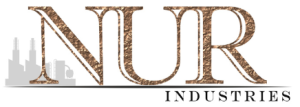Private labelling has become a buzzword in the business world, offering entrepreneurs and brands a golden opportunity to grow without the hassle of manufacturing. Whether you’re looking to expand your product line or create a unique brand identity, private labelling might just be the solution. In this blog, we’ll break down what private labelling is, its benefits, and how you can leverage it for your business success.
What is Private Labelling?

Private labelling allows businesses to sell products manufactured by a third party under their own brand name. The manufacturer handles production, and you focus on branding, marketing, and selling the product. It’s a partnership where the hard work of creating the product is outsourced, letting you focus on growing your brand.
Examples of Private Labelling in Action
- A skincare company selling lotions branded with their logo but manufactured by a different company.
- A grocery store offering “store brand” snacks made by a third-party manufacturer.
Why Choose Private Labelling?
Private labelling is gaining popularity for good reason. Here’s why it’s a smart move for businesses:
- Custom Branding
With private labelling, you can design the product’s packaging and create a brand identity that resonates with your audience. This helps you stand out in the market.
- Cost Efficiency
You save on the costs and risks of setting up manufacturing facilities. Instead, you invest in marketing and distribution, which are more manageable and scalable.
- Focus on Core Strengths
By outsourcing production, you can focus on your core strengths like building customer relationships, marketing, and growing your business.
- Quick Market Entry
Private labelling allows you to enter the market faster since the product is already being manufactured. You only need to customize it to your branding.
Industries Benefiting from Private Labelling

Private labelling is used across various industries, such as:
- Skincare and Cosmetics: Lotions, creams, and serums.
- Food and Beverages: Snacks, health drinks, and spices.
- Supplements: Vitamins and minerals tailored for specific health needs.
- Wellness Products: Himalayan pink salt, essential oils, and bath products.
How to Start Private Labelling
- Find the Right Manufacturer
Research and partner with a trusted manufacturer who can meet your product and customization requirements.
- Define Your Product
Decide on the product specifications, including packaging, branding, and features. If needed, discuss options for tailoring products, such as iodine-enriched Himalayan pink salt or Kosher-certified items.
- Build Your Brand Identity
Create a memorable logo, packaging design, and messaging that aligns with your brand values.
- Market Effectively
Promote your product through social media, websites, and offline channels to reach your target audience.
The Benefits of Private Labelling for Himalayan Pink Salt
Himalayan Pink Salt is an excellent candidate for private labelling due to its versatility and popularity. Here’s why:
- Customizable Options: Tailor iodine content or offer Kosher-certified salt based on customer needs.
- High Demand: Consumers prefer natural, high-quality products.
- Brand Identity: Position your brand as a leader in wellness products with tailored packaging.
Challenges in Private Labelling (and How to Overcome Them)
While private labelling has many advantages, it’s essential to be aware of potential challenges:
- Quality Control: Choose a reputable manufacturer to ensure product quality.
- Competition: Focus on unique branding and value-added features to stand out.
- Initial Costs: While cheaper than manufacturing, private labelling still requires an upfront investment in branding and marketing.
Why Private Labelling is a Smart Choice for Business Growth
Private labelling empowers businesses to:
- Expand their product range without the hassle of manufacturing.
- Build a unique brand identity in competitive markets.
- Offer customized products, such as Himalayan pink salt with tailored options for iodine content or Kosher certification.
This approach lets businesses scale efficiently, meet market demands, and stay ahead of trends.
Conclusion: Is Private Labelling Right for You?
Private labelling is a cost-effective, scalable, and efficient way to grow your brand. Whether you’re a small business or an established company, private labelling offers endless opportunities to customize products, enter markets quickly, and create a strong brand identity. If you’re ready to take your business to the next level, private labelling might be your perfect strategy.
FAQs About Private Labelling
- Can I customize product features through private labelling?
Yes! Many manufacturers offer options like tailored iodine content in Himalayan pink salt or Kosher certification for dietary needs. - Is private labelling expensive?
It’s more cost-effective than setting up your own manufacturing unit. Initial investments include branding and marketing. - What industries can benefit from private labelling?
Skincare, food, wellness, supplements, and more can thrive with private labelling.
Empower your brand with private labelling—start today!
